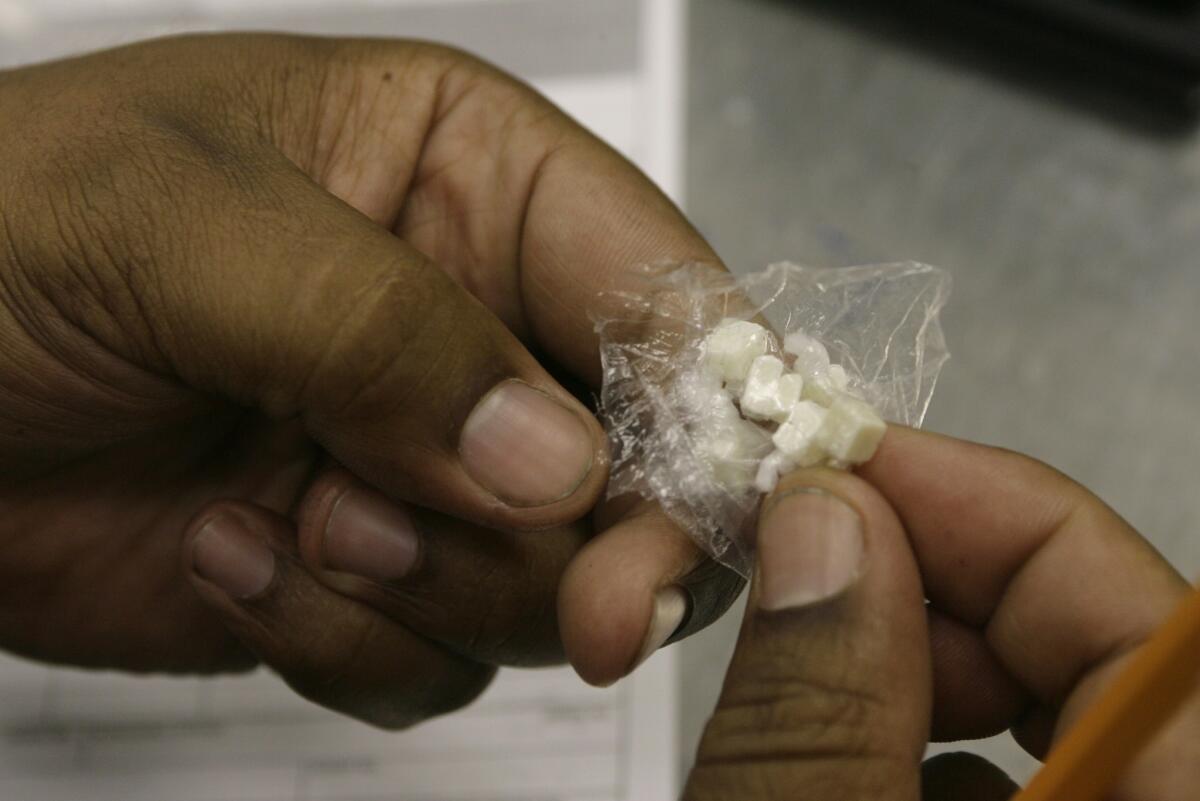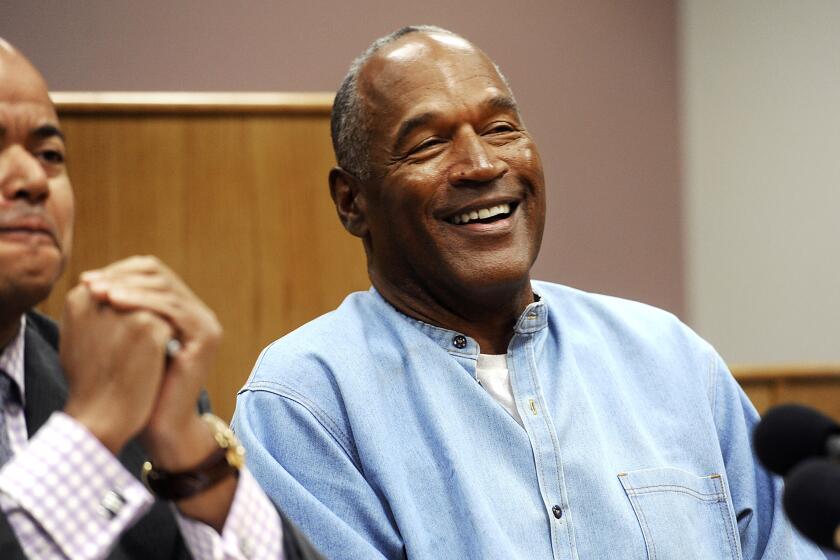Lawmakers seek to reduce crack cocaine sentences to those of powder

The state Senate gave final legislative approval Thursday to a bill that would reduce the penalties for the sale of crack cocaine to the same levels for powdered cocaine, addressing concern that the sentencing disparity harms minority communities.
People convicted of intent to sell crack cocaine can be sentenced to three to five years behind bars under current state law, while those offenses involving powder involves sentences of two to four years.
The measure, which now goes to Gov. Jerry Brown for consideration, was introduced by Sen. Holly Mitchell (D-Los Angeles) and reduces the sentencing range for crack to that of powder. It addresses Mitchell’s stated concern that crack convictions in low-income and minority communities are more common because crack is cheaper than powder.
Mitchell said that between 2005 and 2010, African Americans made up 77% of California state sentences for possession of crack for sale, while Latinos accounted for 18% and Caucasians accounted for less than 2%.
“Whether sold as crack or powder, used on the street or in a corporate penthouse, the penalty for cocaine use should be the same for everybody,” Mitchell said in a statement. “My bill establishes fairness in sentencing.”
SB 1010 barely secured a majority vote. Mitchell brought up her bill after Sen. Loni Hancock (D-Berkeley) was brought to the chamber in a wheelchair while on leave to recover at home from a broken leg.
Later, on a bipartisan vote, the state Senate approved a measure Thursday that would remove from state law books provisions of Proposition 187, the 1994 state ballot measure that sought to prohibit state services to immigrants in the country illegally. The provisions to be removed were invalidated as unconstitutional by the courts.
Sen. Kevin de León (D-Los Angeles) introduced SB 396 “so we can move forward collectively as a state,” he told his colleagues. He denounced what he called the “polemic language” of the measure, which he said would have deprived tens of thousands of immigrant children access to schools.
“We have come a long way, a very long way since Proposition 187,” De León told his colleagues before the 33-0 vote to send the bill to the governor.
More to Read
Start your day right
Sign up for Essential California for news, features and recommendations from the L.A. Times and beyond in your inbox six days a week.
You may occasionally receive promotional content from the Los Angeles Times.







